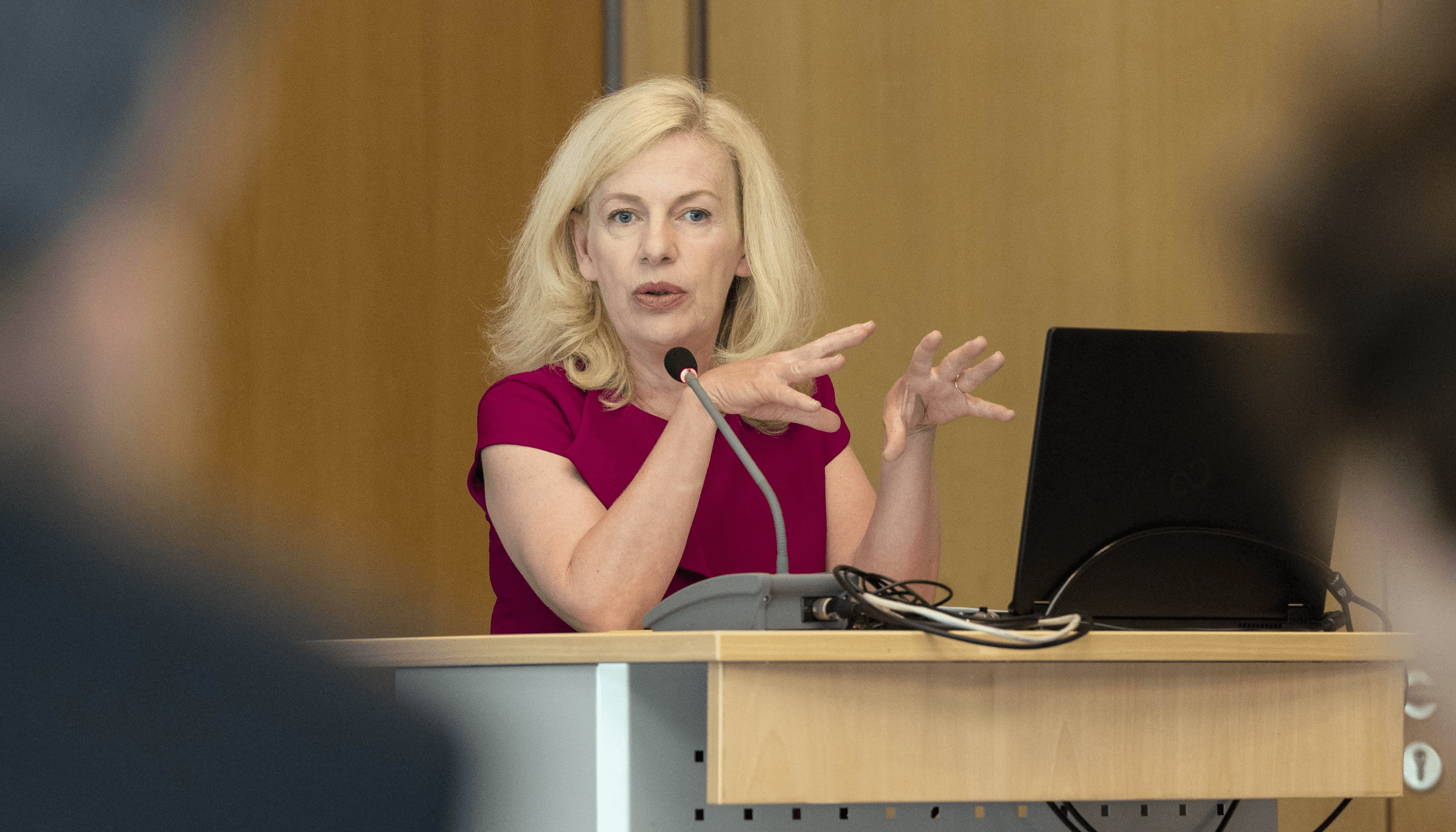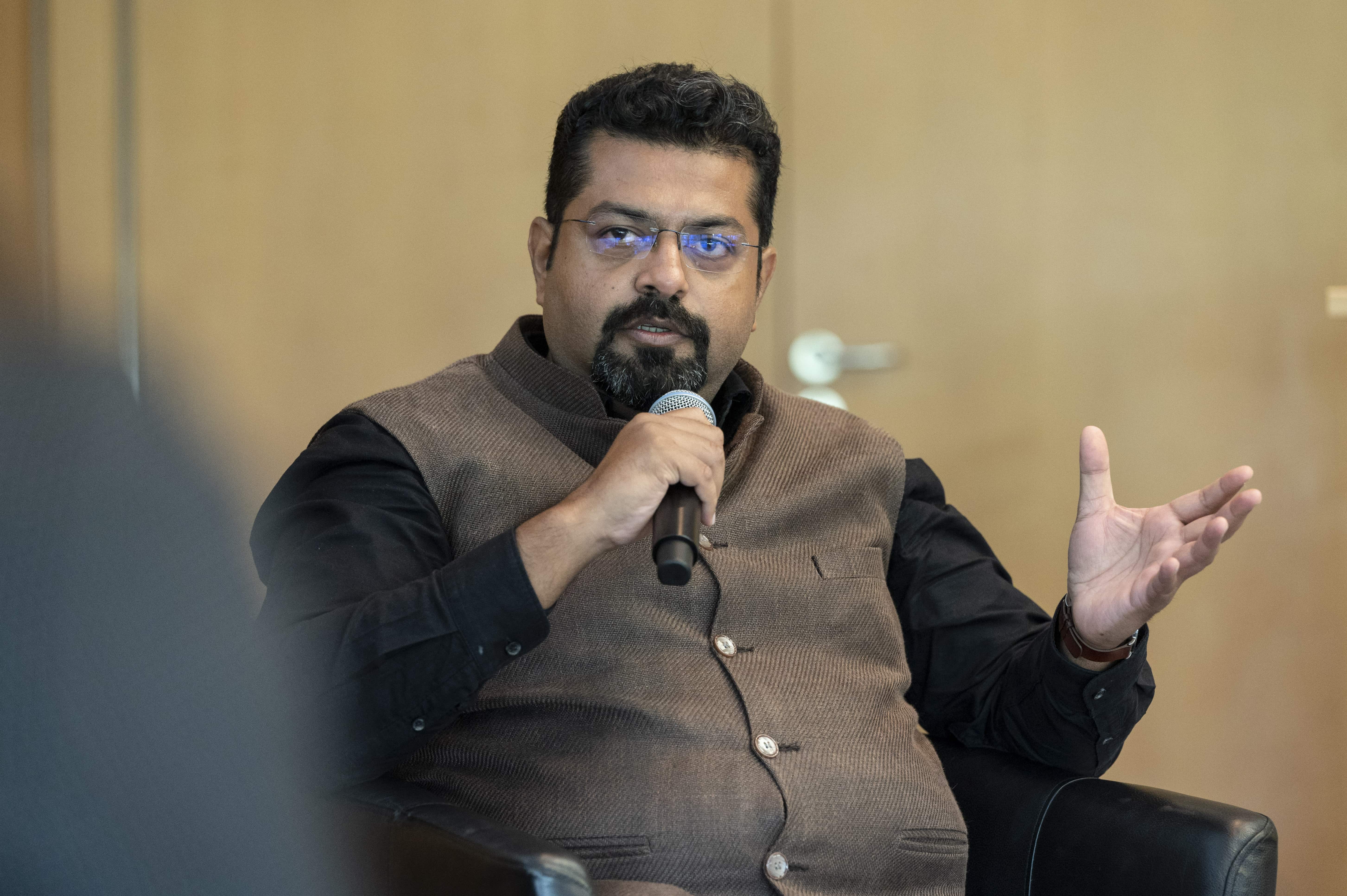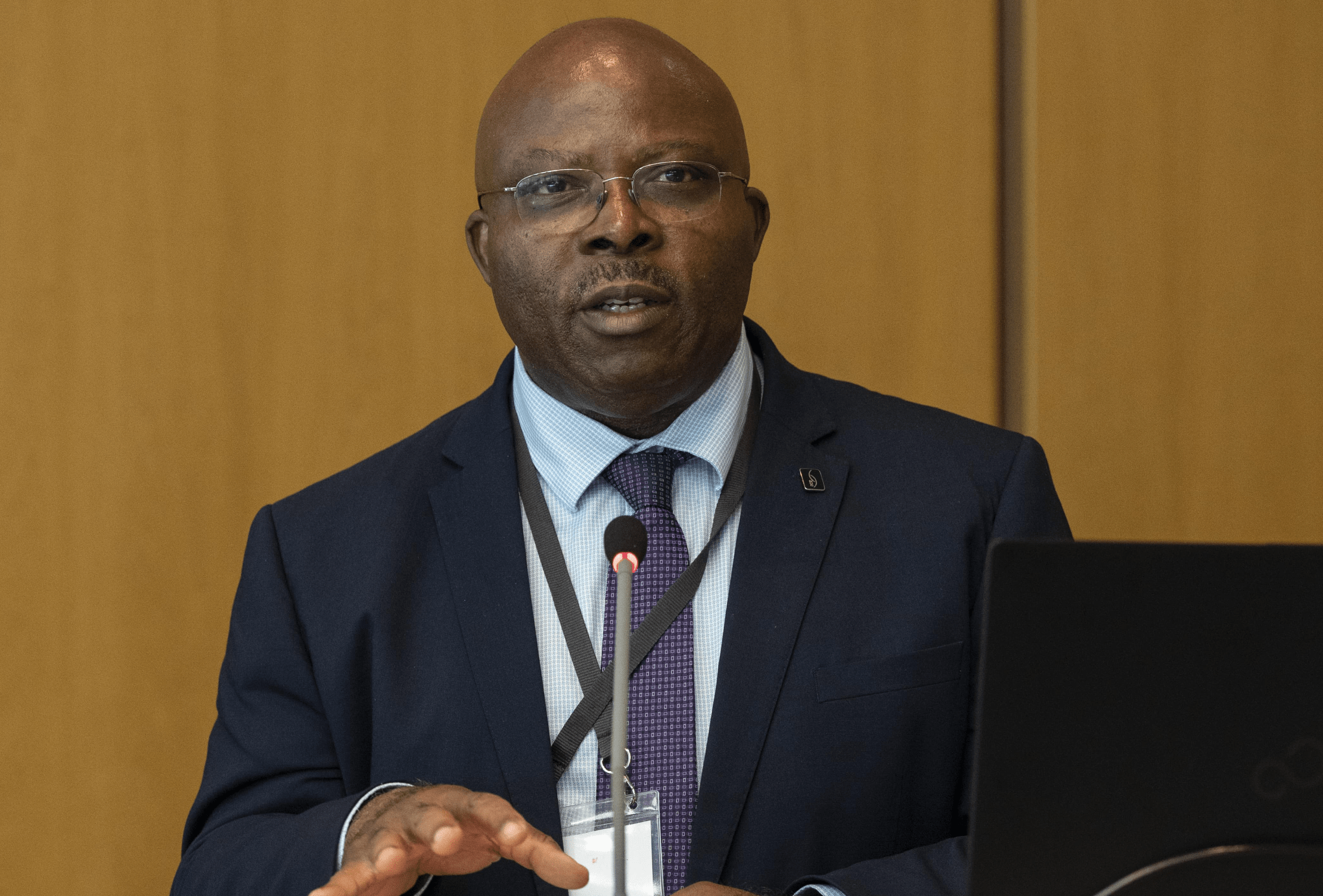At an official side event of the International Transport Forum (ITF) in Leipzig, Germany, speakers called for a paradigm shift to create more resilient and inclusive transport in low-income countries (LICs).
The session, hosted by HVT, the International Road Federation (IRF) and SuM4All, was attended by transport professionals, business leaders, heads of international organisations, policy makers and leading researchers as part of the three-day summit to discuss ‘Transport for Inclusive Societies’.
Delivering the keynote for the side event, Nancy Vandycke, Manager at the Sum4All partnership, spoke of how the Paris Climate agreement raised expectations to deliver greener, safer and inclusive transport. Much thought has been given to the climate risk, she said but the pandemic was unexpected:
“We never saw that a shock like the pandemic would have an impact like complete bankruptcy of private and public operators or disruption of global supply chains with the result that we would have no food on the shelves in groceries.”

She said that in order for systems to bounce back from major disruption we need to think differently, and that Sum4All has built up a catalogue of policy measures that can be used to generate an action plan and which will: “Deliver on the ambition of sustainable and resilient transport systems”.
Anne Joselin, Infrastructure Advisor, Research and Evidence Directorate at the Foreign Commonwealth and Development Office (FCDO) outlined HVT’s urgent response to the COVID-19 pandemic with the commissioning of 20 research projects, funded by UK AID, to inform a response to the pandemic. She said:
“Evidence will be key to making better decisions and being better prepared.”
Anouar Benazzouz, President of the International Road Federation (IRF) spoke of how HVT’s COVID-19 programme – in collaboration with the Global Alliance of NGOs for road safety – enabled the IRF to review of the impact of the COVID-19 response on transport and mobility in seven African countries. The report’s findings highlight the importance of partnerships and coordination, he said:
“Sharing knowledge and expertise is key to progress in the transport sector and finding ways to coordinate and leverage on that expertise is equally important”.
Moderator, IRF Director General Susanna Zammataro, herself an expert in resilient transport, then introduced the panellists for a discussion on developing more resilient and inclusive transport in LICS as we emerge from the pandemic.
United Nations Environmental Programme (UNEP) Team Leader Carly Gilbert-Patrick said that our recovery must make walking and cycling a priority. She said:
“Walking is the dominant mode of travel across the African continent, but it is still poorly valued by the authorities and the general public… COVID has shown us that low tech solutions are key, rather than the tech-heavy solutions that global responses rely on.”
Bronwen Thornton, CEO of Walk21 continued with the walking theme, referring to the HVT report by the Walk21 Foundation that focuses on the impact COVID-19 had on perceptions of walking and how that affected its value. Associations with poverty have meant that walking is not highly valued, but the report found that COVID made people realise its importance and the need to reallocate resources to mobilise people to walk.
- 74% of roads in Africa don’t have footpaths,
- 92% don’t have crossings,
- 48% have poor signs and maintenance.
- Improving the infrastructure would reduce crashes by 90%.
Bronwen believes that to build an equitable, sustainable future we don’t need to find new funds, she said we must: “Reallocate existing resources and build the knowledge base and capacity to deliver on that opportunity.”
Tom Fleming, Associate at ITP, then spoke about the issues faced by elderly and disabled people in accessing transport. He explained that much that prevents people from travel is the environment around them rather than the impairment they have. Different conditions present different needs in people, so the key is in reconciling and balancing different needs. Using bright colours helps people with visual impairments, for example, but can be challenging for people with autism. So it’s important the design of transport addresses the range of issues that exist.
Rutul Joshi of CEPT University in India then explained what a resilient transport system would look like in a city in a LIC. Rutul stressed the importance of looking at the choices people make. He said:
“Often in transport we focus so much on infrastructure that we stop focusing on people”.

He spoke about the need for a process structure to simplify things, and about connecting plans to budgets. Transport should run as a balance of business and a service, he said. Resilience will come out of that.
The discussion then turned to how best to make meaningful decisions. Bronwen spoke of flooding the data gap and growing the knowledge database by adopting a national perspective and using existing available databases about walking to get people thinking differently. Planning has to be informed by events as patterns change, as illustrated during COVID when people without access to transport were stuck without food.
Susanna agreed that there is a need to create understanding of these issues so that knowledge and capacity building is possible. Without them it’s impossible to make meaningful decisions.
Discussing policy recommendations, Tom referred to the challenges which come with the implementation and enforcement of policies on disability and inclusion. He’s keen to see organisations driving inclusion and explained how he has been working through HVT to update and further develop a guidance document – Road Note 21 – for policy makers and practitioners.
In closing remarks, each panellist described one recommendation as a priority to progress the debate on resilient and inclusive transport.
“Decent work, decent transport for everyone and decent housing, a triangle,” said Rutul. “If you get it right the chances of moving out of poverty are much higher.”
Tom urged all not to forget about disability and to ensure that the 15% of the world’s population who live with disability are included in plans.
Bronwen reiterated the need for a paradigm shift in the way we imagine moving in our cities and communities. “We need to embed that change in all the systems from policy decision to delivery”.
HVT’s Team Leader Bernard Obika gave thanks to all, including partners IRF and the excellent moderation from IRF Director General Susanna Zammataro.


